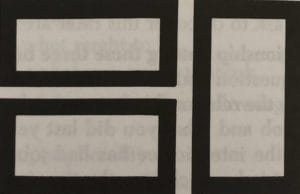We’re putting out lots of content to help people through these unusual times, and part of that process is acting on follower feedback to know what content people would find useful.
One of the comments that came in from a follower on social media, was that they were struggling with certain days, which felt rather heavy because everything and every day felt the same.
As soon as I read that, I knew what was behind that issue, and it’s down to a meta programme (which we cover in-depth on our NLP Master Practitioner Certification).
Meta Programmes are one of our deepest filters, governing how we experience and respond to our environment.
An example of a meta programme, that is fresh in my mind, because it was something that I helped someone with recently, is whether you are an introvert or an extrovert. An introvert would find the current climate much easier to deal with. An extrovert, on the other hand, recharges their batteries by going out, socialising, and all manner of other things that we are currently not allowed to do, so will be finding things tougher right now.
The meta programme in question here, though, is the Relationship Filter, or the Relationship Sort. This relates to things in our environment and whether we are more likely to perceive similarities or differences.
So, which one are you?
Take a look at the diagram below and think about whether you instantly see the similarities or the differences in it.

Some will say they all have four sides, there on the same image, they are all in blue, they’re all rectangles – they notice the similarities.
Some will say they’re different boxes, different sizes, 2 are horizontal and 1 is vertical. There’s a sliding scale between the sameness and differences; notice which came up first and then notice if you got some differences or sameness next?
People who sort more by difference will find the current situation harder because there isn’t that difference in their environment. First up, it’s not you, there’s nothing wrong with you, it’s just your Meta Programme. The way you address and experience the world is looking at differences, so when there aren’t any it’s harder.
What can you do about this?
First up, you can start to create differences in your surroundings. Move the furniture about, sit in a different chair when watching TV, work in a different room, walk a different route when taking your exercise break (if you’re in a country where that’s allowed) and so on. There are plenty of small things you can be doing to inject some ‘difference’ into your daily lives.
Secondly, you can use the download to change your Meta Programme. Instead of working out when So you just work our when you decided to be more difference than sameness.
The ideal way to do this is to open up your neurology, so that you can go from difference to sameness. That will make you more flexible in your thinking.
To do this, we need to start ‘chunking up’ on the things we’re experiencing or thinking. As an easy explainer, we can ask “What is this an example of?”. For example, a car is a type of transport, which is a type of movement, which is a type of energy.
By going through our daily lives, chunking up by asking what’s the purpose, what’s does that do for me, what’s the intention of that. Keep going until you don’t have a next level to chunk up to. This will open up our neurology to see sameness instead of difference.


